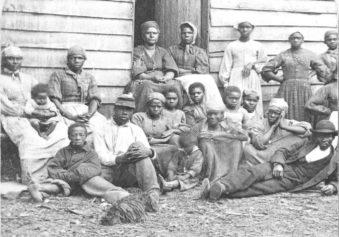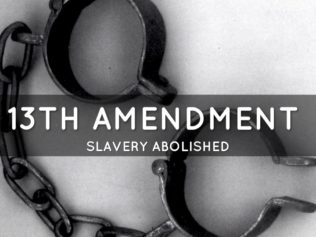What do you know about the Emancipation Proclamation?
Many people think it was the document that freed all the slaves. Actually it was the 13th Amendment that did that.
On Sept. 22, 1862, five days after Union forces turned back Confederate forces at Antietam, President Abraham Lincoln issued what has become known as a Preliminary Emancipation Proclamation that warned the rebel states that if they did not reconcile their differences with the Union by Jan. 1, 1863, “I am going to free all your slaves,” said Reginald Washington, an archivist and African American Records Specialist for the National Archives.
On Jan. 1, 1863, 100 days after the warning, Lincoln issued the final version of what we know today as the Emancipation Proclamation.
“The final proclamation did not immediately free slaves,” Washington said. “It only applied in areas where the Union did not have control.” Slaves in the border stats of Maryland, Delaware, Kentucky and Missouri, which remained in the Union, and in certain parishes of Louisiana – as part of a compromise – were not freed until the 13th Amendment, which ended slavery, was passed and ratified in 1865.
Rather than a document of finality, then, the Emancipation Proclamation was a first step in a political process that led to freedom for enslaved Americans.
The document itself became a symbol of hope for the enslaved and has since come to represent what America can be at its best.
This year the National Archives has scheduled a series of events, including a Watch Night, from Dec. 30-Jan. 1, celebrating the 150th anniversary of the proclamation and putting two pages of the original document on display in the rotunda of the Archives. The display will include the signature page, signed by Lincoln and Secretary of State William Seward, embossed with the Seal of the United States, which sets it apart from copies of the document.
The proclamation is seldom displayed because exposure to light damages the document. When it is on display, only two of the five pages are exposed at any one time, said Katherine Nicholson, deputy director of the Archives Conservation Lab, where the media got a sneak preview of the entire document on Thursday.
Washington said the Emancipation Proclamation was more than a political decision; it was a military maneuver.
Lincoln did not have the constitutional authority to end slavery, but as commander-in-chief he could free the enslaved as part of his war powers by declaring the Confederate states’ refusal to surrender them to the authority of the Union an act of war.
Further, the Emancipation Proclamation not only declared slaves in the rebel territories free, but ‘such persons of suitable condition will be received into the armed service of the United States to garrison forts, positions, stations, and other places, and to man vessels of all sorts in said service,” the proclamation reads.
A detailed history of the Emancipation Proclamation is available online, including a YouTube video, which is a useful tool even for those planning to attend some of the festivities at the Archives. Other activities will be scheduled throughout the year, as well as lesson plans developed for teachers.
The Archives also has released “The Meaning and Making of Emancipation,” an eBook that places the Emancipation Proclamation in its social and political context and is available for downloading via iTunes Android phone, Android tablet, iPhone, iPad, Nook, SONY Reader, other mobile device or eReader, or PC or Mac and on Scribd.
“I have to admit I have goosebumps when I think about this document and how it changed America,” said journalist and author A’Lelia Bundles, who is the chair and president of the Foundation for the National Archives.
While the document did not free the majority of enslaved Americans, Bundles said, “it set the stage” for the Union to create hope for black men and women “to believe their children could be born free and made the passage of the 13th Amendment a necessity.”
Bringing the history of something you only know about from a classroom textbook to life makes clearer why politics and compromises are so intense and why some politicians behave as if so many issues are life and death, because occasionally they are.
Jackie Jones, a journalist and journalism educator, is director of the career transformation firm Jones Coaching LLC and author of “Taking Care of the Business of You: 7 Days to Getting Your Career on Track.”


